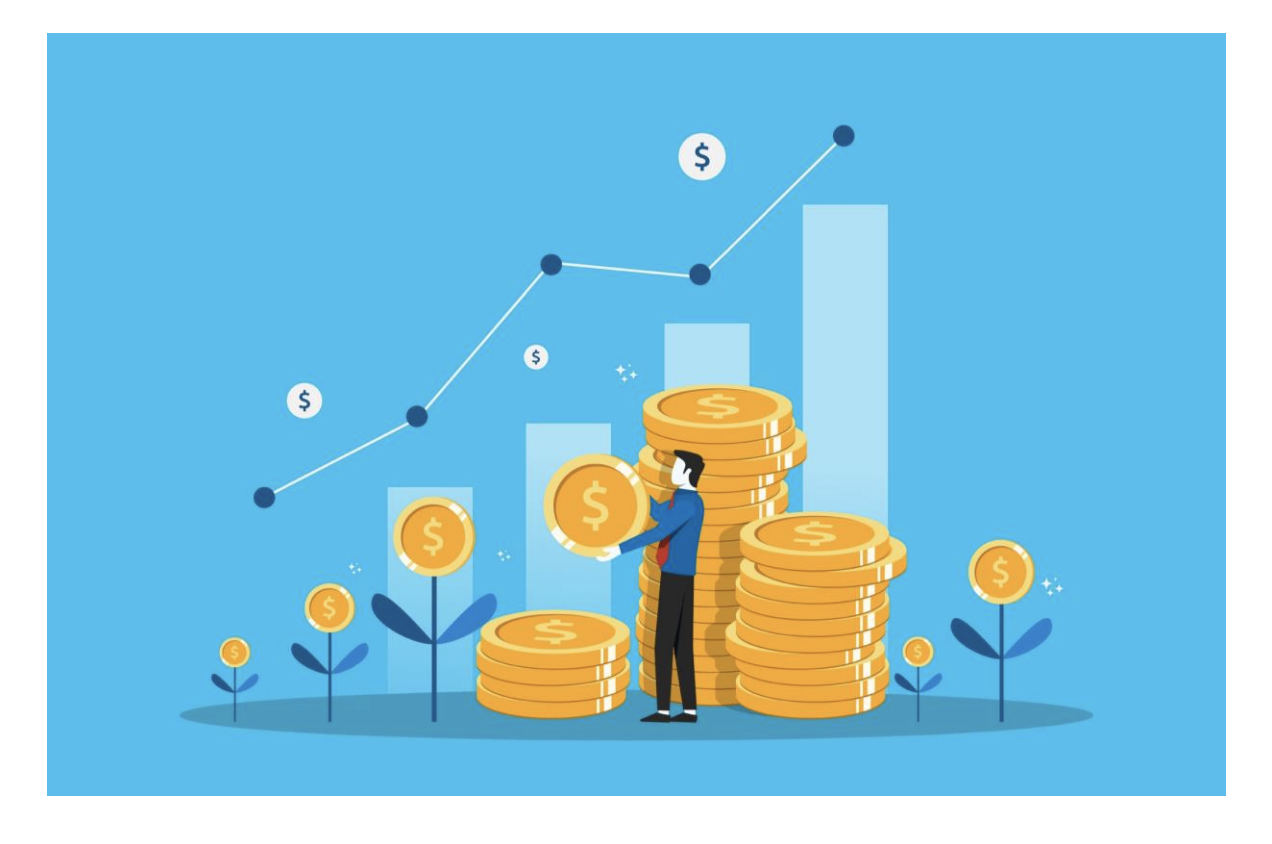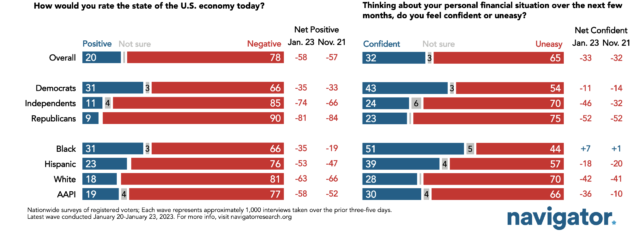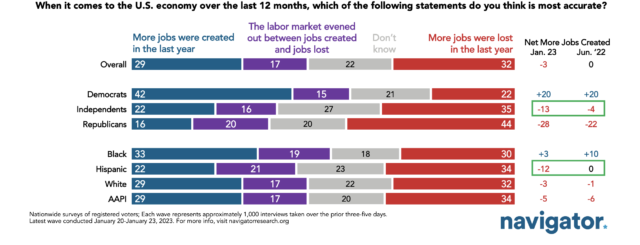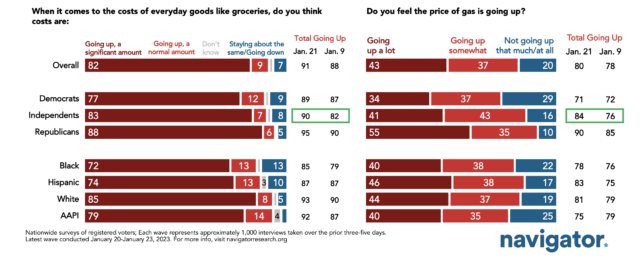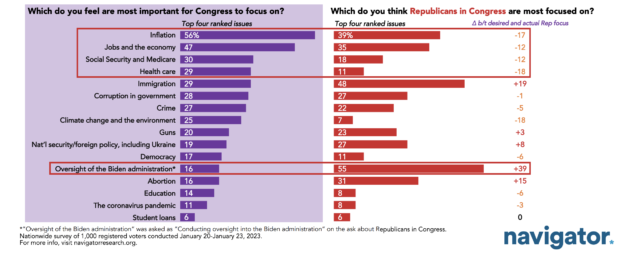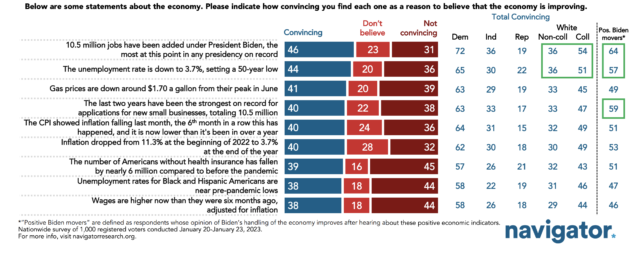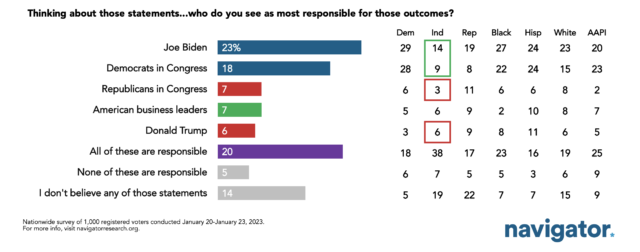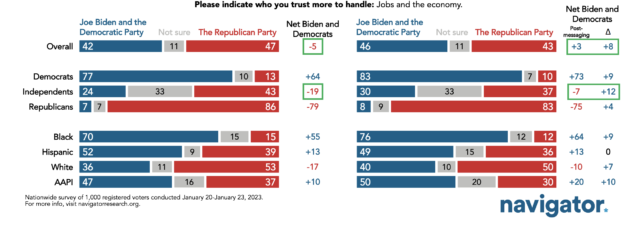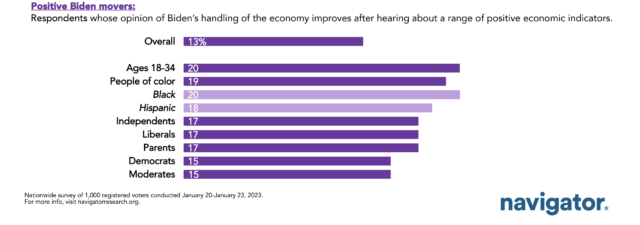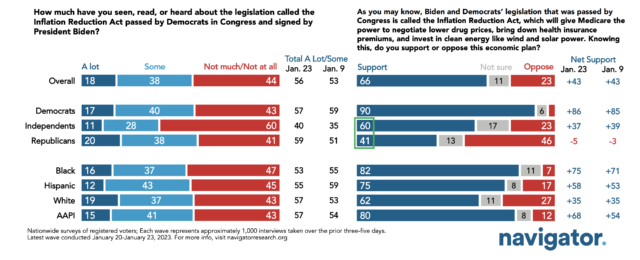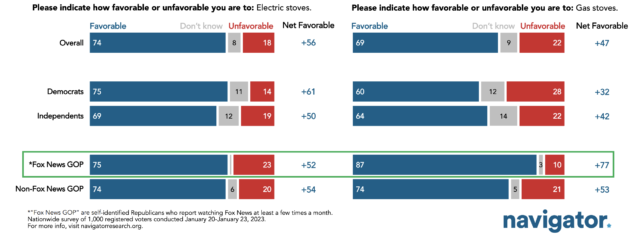- Americans continue to hold negative views of the economy and perceive prices to be rising; they also do not believe Republicans in Congress are focused enough on inflation and jobs.
- The most convincing reasons to believe the economy is improving are record job creation rates over the last year and the low unemployment rate.
- Learning about recent economic successes boosts Americans’ trust in Biden and Democrats on jobs and the economy over Republicans.
Americans Consistently Negative on Economy and Personal Financial Situations Compared to After the Election
Ratings of the economy and personal financial situations remain consistent and negative compared to late November.
- Nearly nine in ten independents rate the national economy negatively (85%), and seven in ten say they feel uneasy about their personal financial situation (70%).
Awareness Remains Consistent, Mixed on Job Loss & Creation
Americans are split on the question of job creation over the past year, with roughly equal shares saying more jobs were created than lost (29%) and more jobs were lost than created (32%) over the last 12 months.
- Independents have grown more negative since the middle of 2022 (net -13 more jobs created now, down from net -4 in June); Hispanics have shown a similar shift (net -12 now, down from net +0 in June).
Gas and Grocery Prices Are Perceived As Increasing
Since early January, the share of independents who say grocery costs are going up has increased by 8 points (from 82% to 90%), and the share who say the price of gas is going up has also increased by 8 points (from 76% to 84%).
Republicans in Congress Are Not Seen Focusing on Inflation, Jobs and Economy As Much As Americans Want
While more than half of Americans think inflation is a top four issue, only 39% think Republicans in Congress are focused on the issue. • There is a nearly 40-point gap between the share who prioritize oversight of Biden (16%) and who think it is a GOP focus (55%).
Job Creation, Low Unemployment Rates Are the Best Reasons to Believe the Economy Is Currently Improving
After learning about these economic metrics, 13% of Americans express an improved opinion of Biden’s handling of the economy.
- Among this group of positive Biden movers*, the most convincing reasons to believe the economy is improving are job creation (64% convincing), new small business applications (59%), and the low unemployment rate (57%).
Two in Five Say Biden or Democrats in Congress Responsible After Reading Positive Economic Outcomes
Independents are more likely to credit Biden or Democrats (23% total) than Trump and Republicans (9% total).
After Learning About Recent Positive Economic Outcomes, a Plurality Trust Biden and Democrats More on the Economy
After statements, Americans shift from trusting the Republican Party by net 5 points to trusting Biden and Democrats by net 3 points on “jobs and the economy.”
Those Who Move to Rate Biden More Positively on the Economy Tend to Be Younger, People of Color, Non-Republicans
Americans ages 18-34 most disproportionately fall into this group (20% are positive Biden movers), while only 9% of seniors fall into this category. People of color (19%) are also more likely to fall into this group than white Americans (12%).
- This group also tends to be more moderate or liberal, with 17% of independents and 15% of Democrats falling into this group compared to just 10% of Republicans.
Views on the Inflation Reduction Act Remain Positive as Roughly the Same Share Continue to Hear About It
A majority of independents (60%) and more than two in five Republicans (41%) continue to support the Inflation Reduction Act.
Most Americans View Both Electric and Gas Stoves Favorably, Though Modest Differences By Party Are Beginning to Emerge
Fox News-watching Republicans* are a net 24 points more favorable to gas stoves than non-Fox News-watching Republicans (net +77 compared to net +53) and are a net 25 points more favorable to gas stoves than electric stoves (net +77 compared to net +52).
